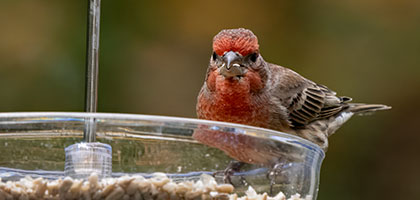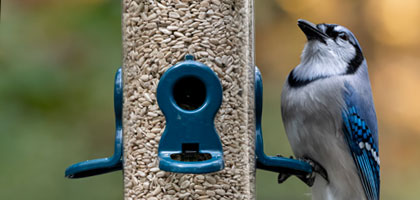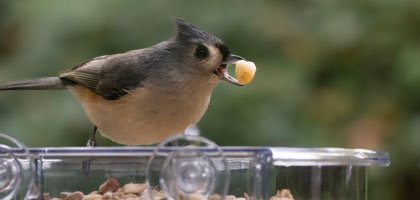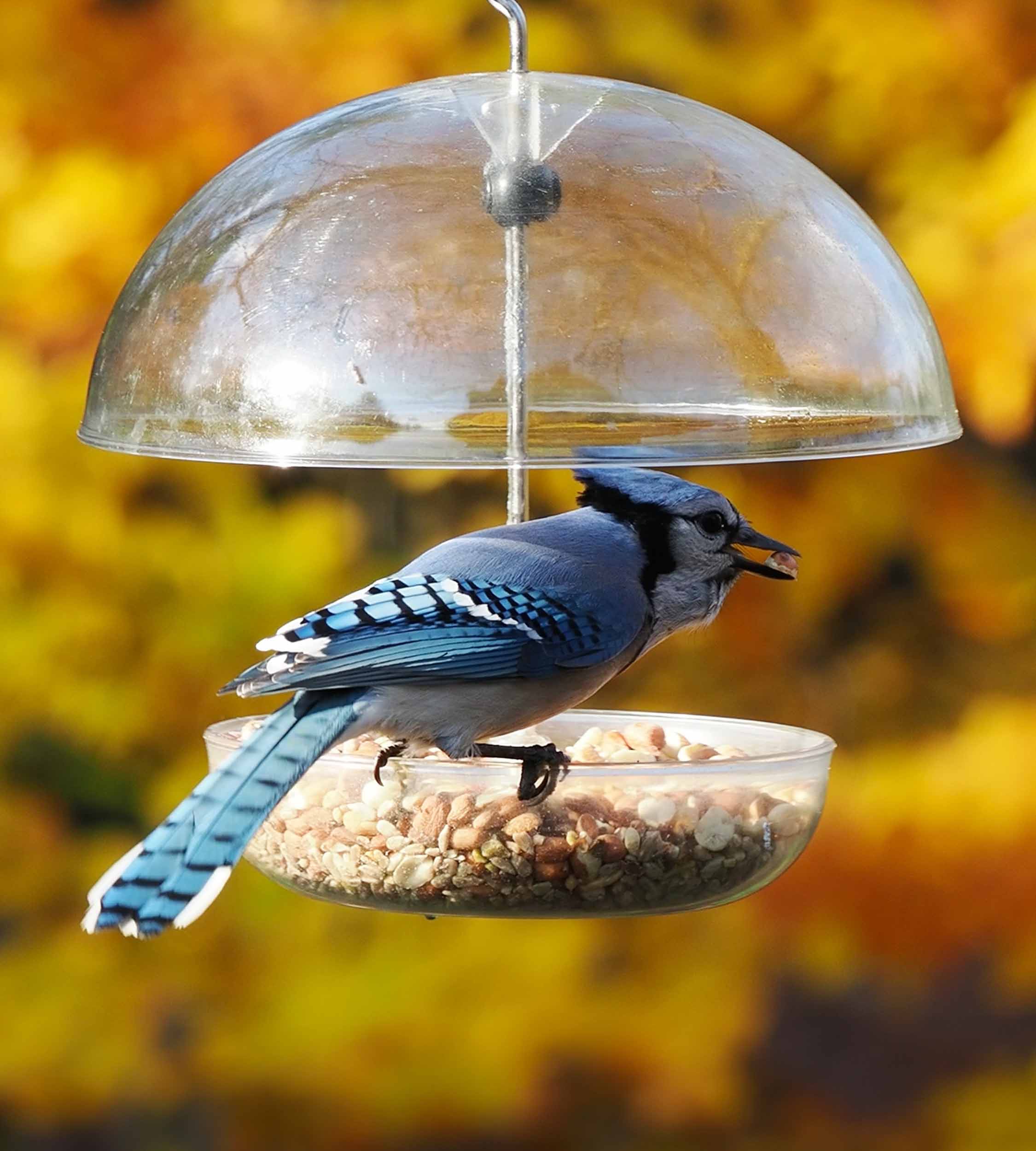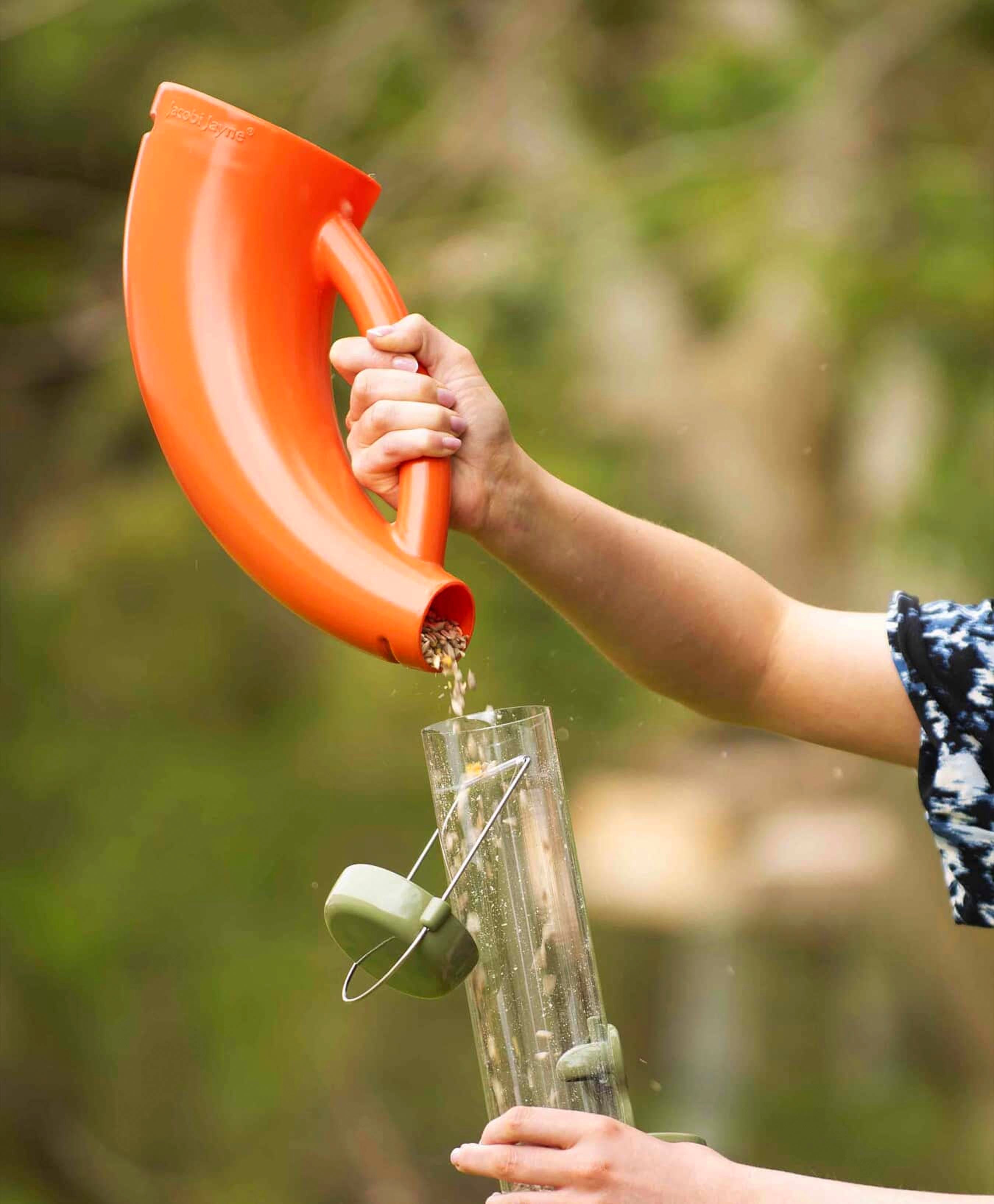Bird feeding is a rewarding hobby. It brings joy to many and helps support local bird populations.
However, it’s not as simple as just tossing out some seeds. The quality and freshness of bird food are crucial for the health of birds.
Understanding the shelf life of bird food is key. It helps prevent waste and ensures the food you provide is safe and nutritious.
In this guide, we’ll explore the shelf life of various bird foods, signs of spoilage, and best storage practices. Let’s ensure the birds enjoy a healthy meal every time they visit your feeder.
The Importance of Fresh Bird Food
Fresh bird food is vital for maintaining bird health and attracting diverse species. Spoiled or stale food can deter birds and even harm them.
Using fresh food helps encourage regular visits from birds. This enhances your bird-watching experience, whether you’re using a small bird feeder, nyjer feeder, or a large bird feeder. Prioritizing freshness not only protects the birds but supports their well-being, ensuring they gain maximum nutrition from the food you provide.
Types of Bird Food and Their Shelf Lives
Different bird foods vary significantly in their shelf lives and storage requirements. Knowing these differences can help you provide the best nutrition.
Bird seed and mixes can last several months if stored properly. However, they can quickly spoil when exposed to moisture or heat.
Suet pellets and cakes are protein-rich, favored by woodpeckers and bluejays. Store them cool to prevent rancidity.
Nuts and peanuts should be free from mold to avoid harm. They can go bad if not kept dry.
Fresh fruit and mealworms are nutrient-dense but spoil quickly. They are best served fresh and replaced often.
A quick guide to shelf life:
• Bird Seed and Mixes: Up to several months
• Suet Pellets and Cakes: Weeks to a few months
• Nuts and Peanuts: Few weeks if stored well
• Fresh Fruit and Mealworms: Days, best served fresh
Bird Seed and Mixes
Bird seed and mixes form the staple diet for many species. Kept in a cool, dry place, they last months.
Check for mold or clumping, which indicates spoilage. Keeping seeds dry helps maintain their nutritional value.
Suet Pellets and Cakes
Suet pellets and cakes are high-energy foods enjoyed by many backyard birds. They attract bluejays, woodpeckers, and others.
Heat can cause them to spoil, so store them in a refrigerator or cool spot to maintain quality.
Nuts and Peanuts
Nuts and peanuts are excellent protein sources. They are particularly enjoyed by squirrels and larger birds like cardinals.
Ensure they’re mold-free, as moldy nuts can be toxic to birds. Checking them regularly can prevent this.
Fresh Fruit and Mealworms
Fresh fruit is a treat for birds like orioles. Offer fruits that are firm and free from signs of decay.
Mealworms are a favorite for birds like bluebirds. However, they spoil fast and should be refrigerated if not immediately used.
Signs of Spoilage in Bird Food
Spoiled bird food is harmful and unattractive to birds. Recognizing spoilage signs ensures the health and safety of your wild visitors.
Visual cues like mold growth are a clear indicator. Bird food may clump or develop discoloration when it begins to spoil.
You should also be attentive to off-smells, which are another sign the food is no longer fresh. An unusual smell often accompanies mold or pest contamination.
Keep an eye out for these spoilage signs:
• Mold: Visible growth or fuzziness
• Off Smell: Strange or rancid odor
• Clumping: Moisture may cause seeds to stick together
• Pests: Presence of insects or rodent damage
Proper Storage Solutions for Bird Food
Proper storage of bird food is vital for maintaining its quality and preventing waste. Choosing the right storage methods will ensure food remains fresh and safe for birds.
Keeping bird food in secure environments helps deter pests and protect it from spoilage. Always select containers that are rodent-proof and easy to access.
Humidity and temperature can greatly affect bird food shelf life. By controlling these factors, you can help extend the freshness of the food.
Implementing the right storage practices not only safeguards bird health but also saves money by reducing food waste.
Containers and Environment
Select airtight containers to preserve the freshness of bird food. Rodent-proof and waterproof solutions help keep pests away.
Place containers in a cool, dark place to minimize heat and light exposure. These conditions are ideal for maintaining food quality.
Rotation and Quantity
Implement a “first in, first out” rotation to use older bird food first. This helps maintain a fresh supply.
Purchase bird food in quantities you’ll use within its shelf life. This approach prevents spoilage and ensures dietary satisfaction.
Preventing and Dealing with Pests
Pests like squirrels and raccoons are common visitors to bird feeders. These animals can contaminate bird food, making it unsafe for birds.
Using physical barriers and feeder placement strategies can deter pests. Surrounding feeders with squirrel baffles or placing them at a safe height can help.
Regularly check storage areas for signs of pests. Act quickly to remove any infestations to protect bird food quality and reduce the risk of disease spread.
Squirrels and Raccoons
Squirrels and raccoons have a knack for getting into bird feeders. Use feeders with squirrel guards or raccoon-proof designs to keep them at bay.
Rodents and Insects
Rodents and insects are attracted to poorly stored bird food. Store food in sealed, airtight containers to prevent infestations and maintain food integrity.
Feeder Maintenance and Hygiene
Regularly cleaning bird feeders is essential for maintaining bird health. Dirty feeders can harbor bacteria and mold, leading to illness.
Use mild soap and water to wash feeders every couple of weeks. Rinse thoroughly to remove any soap residues that could be harmful to birds.
Inspect feeders for damage during each cleaning. Replace or repair damaged parts promptly to prevent injuries and to ensure feeders function correctly.
Seasonal Considerations for Bird Food Storage
During summer, heat and humidity can cause bird food to spoil faster. Consider using smaller quantities to minimize waste and monitor food closely for signs of spoilage.
In winter, food may freeze or become less accessible. Protect storage areas from moisture and rodents by using airtight containers, ensuring a steady food supply for your backyard birds.
Conclusion: Ensuring the Health of Your Birds
Maintaining the freshness of bird food is essential for the well-being of birds. Understanding shelf life, proper storage, and being proactive about spoilage helps support healthy bird feeding practices.
By following these guidelines, you can provide a safe and nutritious environment for the birds. Observing these practices enhances your bird-watching experience and ensures your backyard birds’ health.
